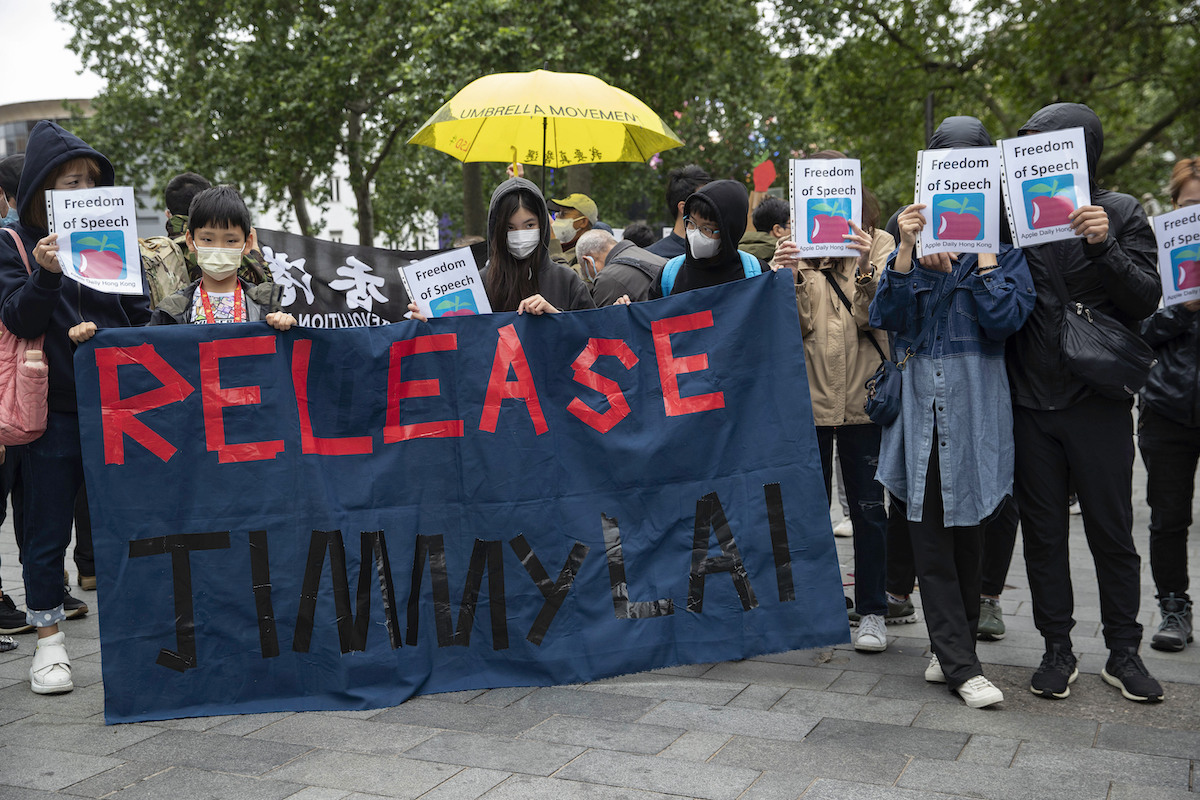On Sept. 17, a Hong Kong high court ruled that the Security Bureau maintains the power to restrict jailed media tycoon Jimmy Lai’s voting rights as the major shareholder of his media company, Next Digital.
The high court did not specify whether Lai was allowed limited voting rights, allowing him to make decisions in dissolving Next Digital. The court suggested that Lai should first make an application to the bureau.
The presiding justice, Anthony Chan Kin-keung, said the court was not in a position to run a full national security assessment on Next Digital but that Lai could come back to the high court if the Security Bureau were to deny his application.
Hong Kong leaders have long pursued Lai for his pro-democracy influence, which runs in opposition to the commanding Chinese Communist Party (CCP). The ruling is the latest crackdown on Lai under the city’s ever-restrictive National Security Law (NSL).
The Beijing-imposed NSL bans Lai from handling his HK$1.88 billion in shares and funds, located in local bank accounts that house the capital of the three companies he owned.
Lai’s lawyers argued that voting on liquidation matters within a company does not constitute “dealing with” frozen properties. Yet the CCP insists that such an action is included under the NSL because of its potential threat to national security.
Hong Kong authorities suspect that Lai might use his vote to divert some financial support to those who endanger national security, whether individuals or groups overseas.
The ruling marks the first time authorities have utilized the powers granted to them under the NSL against the assets of a company suspected of endangering national security.
Chan agreed that the voting rights of a shareholder falls under a property right protected by Hong Kong’s Basic Law, the city’s version of a constitution.
But Chan also pointed out that the right is not absolute or permanent. In his ruling, he also explained that one of the reasons a company receives a freezing notice is to allow for future confiscation or forfeiture.
These extensive measures further the regime’s aim of preventing and punishing any action of political dissent it deems a threat to national security.
In his 30-page judgment, Chan said that if Lai were to have unrestricted voting rights, it would decrease the company’s assets, which could result in a diminishing of shares that might be confiscated or forfeited in the future.
Lai is currently serving a 20-month prison sentence on charges of unauthorized assembly in the 2019 pro-democracy protests. He is due back in court on other NSL-related charges in November.
This is yet one more event in Lai’s timeline of run-ins with the NSL. The Hong Kong government, in its pursuit of absolute control over its citizenry, continues to restrict the rights of individuals like Lai who promote democratic ideals.

